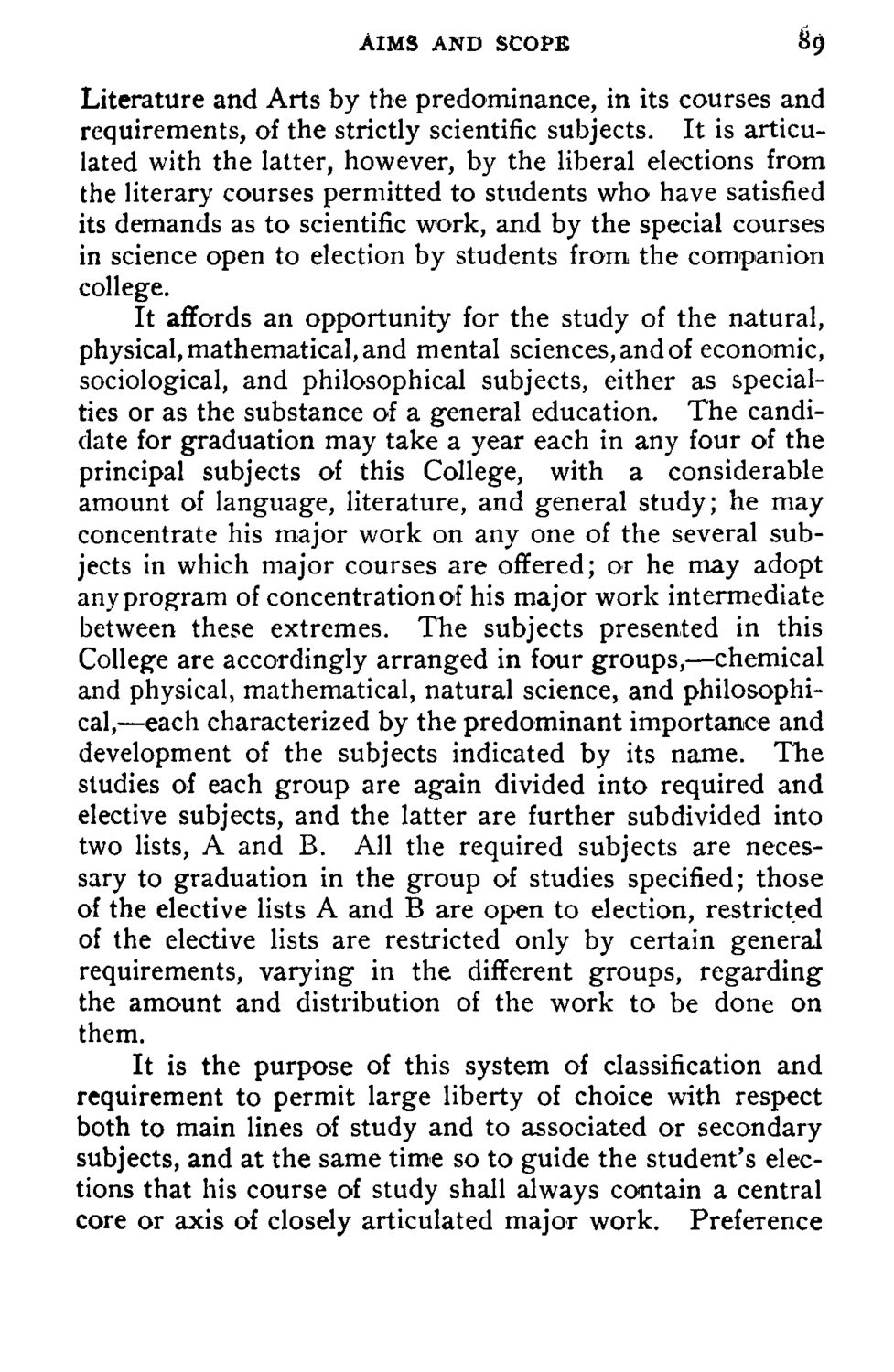| |
| |
Caption: Course Catalog - 1897-1898
This is a reduced-resolution page image for fast online browsing.

EXTRACTED TEXT FROM PAGE:
AIMS AND SCOPE S<j Literature and Arts by the predominance, in its courses and requirements, of the strictly scientific subjects. It is articulated with the latter, however, by the liberal elections from the literary courses permitted to students who have satisfied its demands as to scientific work, and by the special courses in science open to election by students from the companion college. It affords an opportunity for the study of the natural, physical, mathematical, and mental sciences, and of economic, sociological, and philosophical subjects, either as specialties or as the substance of a general education. The candidate for graduation may take a year each in any four of the principal subjects of this College, with a considerable amount of language, literature, and general study; he may concentrate his major work on any one of the several subjects in which major courses are offered; or he may adopt any program of concentration of his major work intermediate between these extremes. The subjects presented in this College are accordingly arranged in four groups,—chemical and physical, mathematical, natural science, and philosophical,—each characterized by the predominant importance and development of the subjects indicated by its name. The studies of each group are again divided into required and elective subjects, and the latter are further subdivided into two lists, A and B. All the required subjects are necessary to graduation in the group of studies specified; those of the elective lists A and B are open to election, restricted of the elective lists are restricted only by certain general requirements, varying in the different groups, regarding the amount and distribution of the work to be done on them. It is the purpose of this system of classification and requirement to permit large liberty of choice with respect both to main lines of study and to associated or secondary subjects, and at the same time so to guide the student's elections that his course of study shall always contain a central core or axis of closely articulated major work. Preference
| |